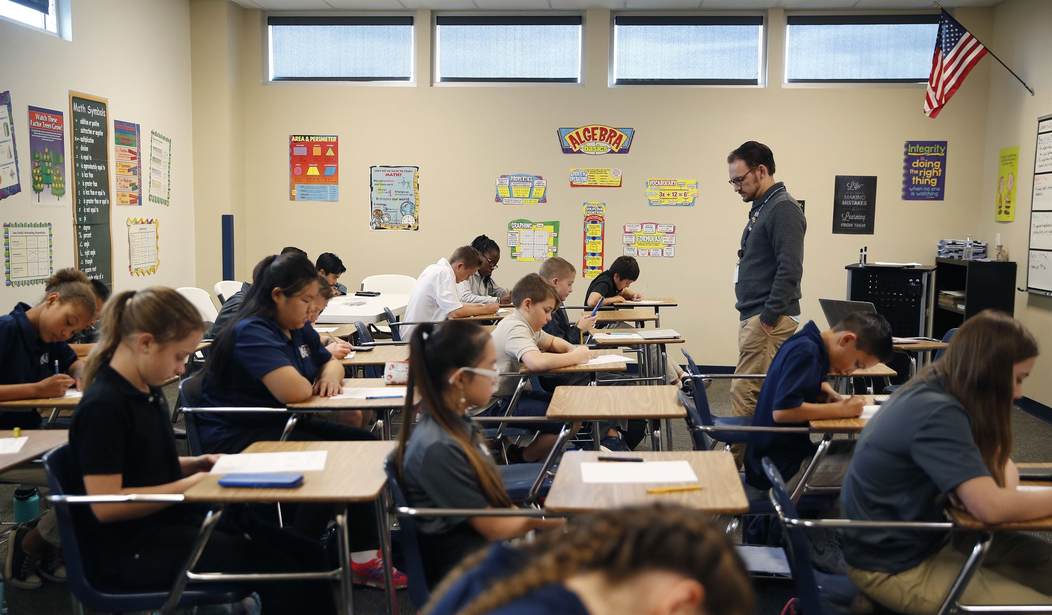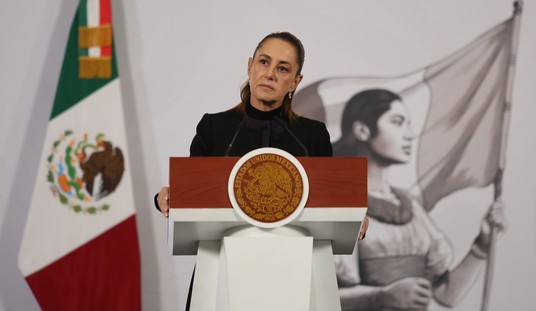The past two years have seen marvelous news on the school choice front. Those advocating for the right of parents to choose where their children are educated have made substantial gains in state governments across the country.
Progressives have battled against the school choice movement at every step, arguing in favor of teachers unions and government control over where parents can send their kids. President Joe Biden has been a vocal opponent of these programs. Nevertheless, it appears the conflict has approached a turning point in favor of choice.
The American Federation for Children pointed out that the vast majority of Americans support school choice:
According to a June poll from RealClear Opinion Research, polling more than 1762 registered voters, a majority support school choice (74% vs. 16% opposed) while 10% are unsure. This is true across party lines, with 83% of Republicans, 69% of Independents, and 70% of Democrats saying they strongly or somewhat support school choice.
As you can see, far-leftists fighting to eliminate school choice are in the minority. But since when have they actually cared what the rest of us plebes think?
The Washington Examiner’s Scott Turner reported:
This year, more states have proposed legislation to expand parental school choice policies than any other time in history. Research on the most effective school choice program in America, the Florida Tax Credit Scholarship, shows that low-income and predominantly minority students using the scholarship are up to 99% more likely to attend a four-year college than their public school peers. Additionally, participating students are 45% more likely to earn bachelor’s degrees.
Other studies have shown that school choice programs have provided tremendous benefits to students – especially those from low-income households. Turner explains:
Unfortunately, educational options are not available for all families. Many lower-income parents have only one choice: the school within their zip code. Children who attend school in districts with a high concentration of poverty can be more than four grade levels behind in reading and math. These inequalities in achievement lead to lower employment rates, diminished earnings, and higher incarceration rates. So why would we let this happen?
While the school choice movement is gaining more traction, there is still plenty of fight from those seeking to destroy efforts to create more options for parents. In Oklahoma, a universal voucher bill that would send money to private schools narrowly passed the state Senate’s Education Committee. Four senators, including one Republican, voted against the proposal. The Oklahoma Education Association tweeted:
SB 1647, a universal voucher bill sending public dollars to private schools passed the @oksenate Ed. Committee today by a narrow 8-7 vote.
SB 1647, a universal voucher bill sending public dollars to private schools passed the @oksenate Ed. Committee today by a narrow 8-7 vote.
Thanks @dossett4ok, @DossettFor34, Sen. Dugger, @hicks4ok, Sen. Pemberton, Sen. Stanley & @blake_cowboy for standing up for public schools! pic.twitter.com/2L33rMTikX
— OK Education Assoc. (@okea) February 15, 2022
School choice advocate Corey DeAngelis responded:
imagine fighting to trap low-income kids in failing government schools for 13 years without exit options.
imagine fighting to trap low-income kids in failing government schools for 13 years without exit options. https://t.co/eeGmdq1lF5
— Corey A. DeAngelis (@DeAngelisCorey) February 19, 2022
Another example of resistance to school choice involves Utah Gov. Spencer Cox, a Republican, who recently told reporters he would veto HB331, a school voucher bill, until teachers are paid more. “I’m all in on vouchers. But we have a long way to go before we get there,” he said during a PBS Utah news conference. “I want to get there. I believe in vouchers. I can’t wait to get there. But now is not the time.”
Deseret News explained:
The governor said Utah’s starting teacher salary is about $43,000 and the average salary for teachers in the state is just north of $50,000, which is too low especially when considering the state’s soaring home prices.
Still, the school choice movement is poised to steamroll the opposition. National Review noted that in 2021, “18 states enacted or expanded school-choice programs,” which “nearly quadrupled the number of K–12 students who are eligible to benefit from some form of voucher, tax-credit scholarship, or ESA, from a little more than 600,000 students in 2020–21 to more than 2.2 million today, according to an analysis by Jason Bedrick and Ed Tarnowski in Education Next.”
Even better, the author predicts that 2022 might be even better. “More than two dozen states already have school-choice bills before their legislatures,” he wrote.
Amid fiery debates over education when it concerns far-leftist ideology in the classroom and mask mandates, school choice has become more of a high-profile issue. Advocates for these programs suggest that it is a solution to the problem. Parents who do not wish to have their children indoctrinated into far-left progressive ideology should be allowed to enroll them in schools that are not hellbent on turning out a new generation of leftist activists. If current trends are any indication, it appears these individuals will be getting what they want in the near future.














